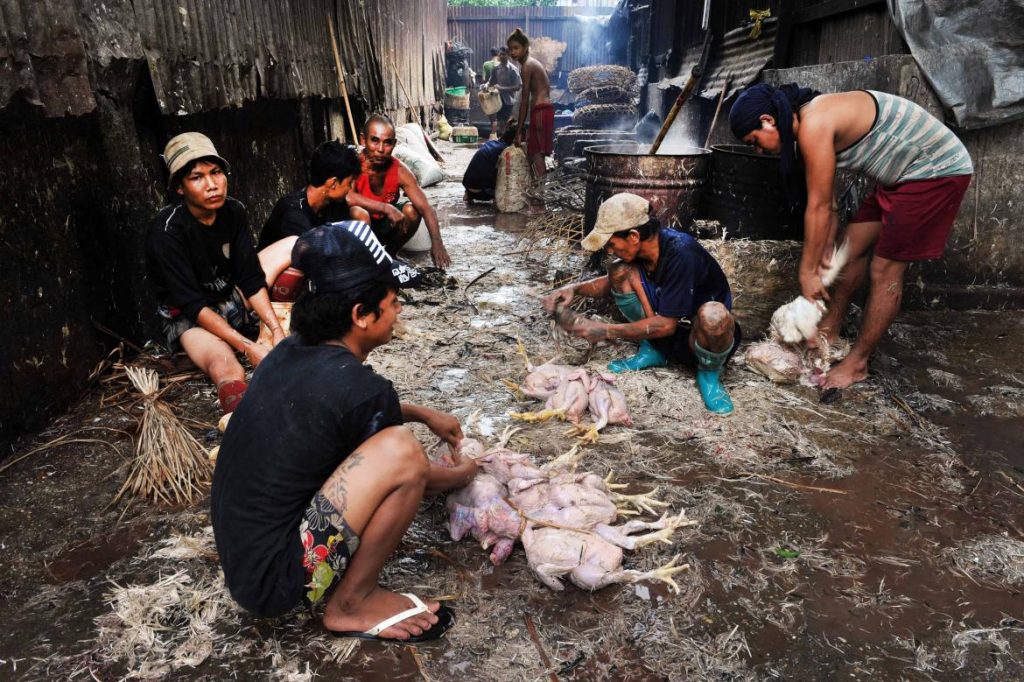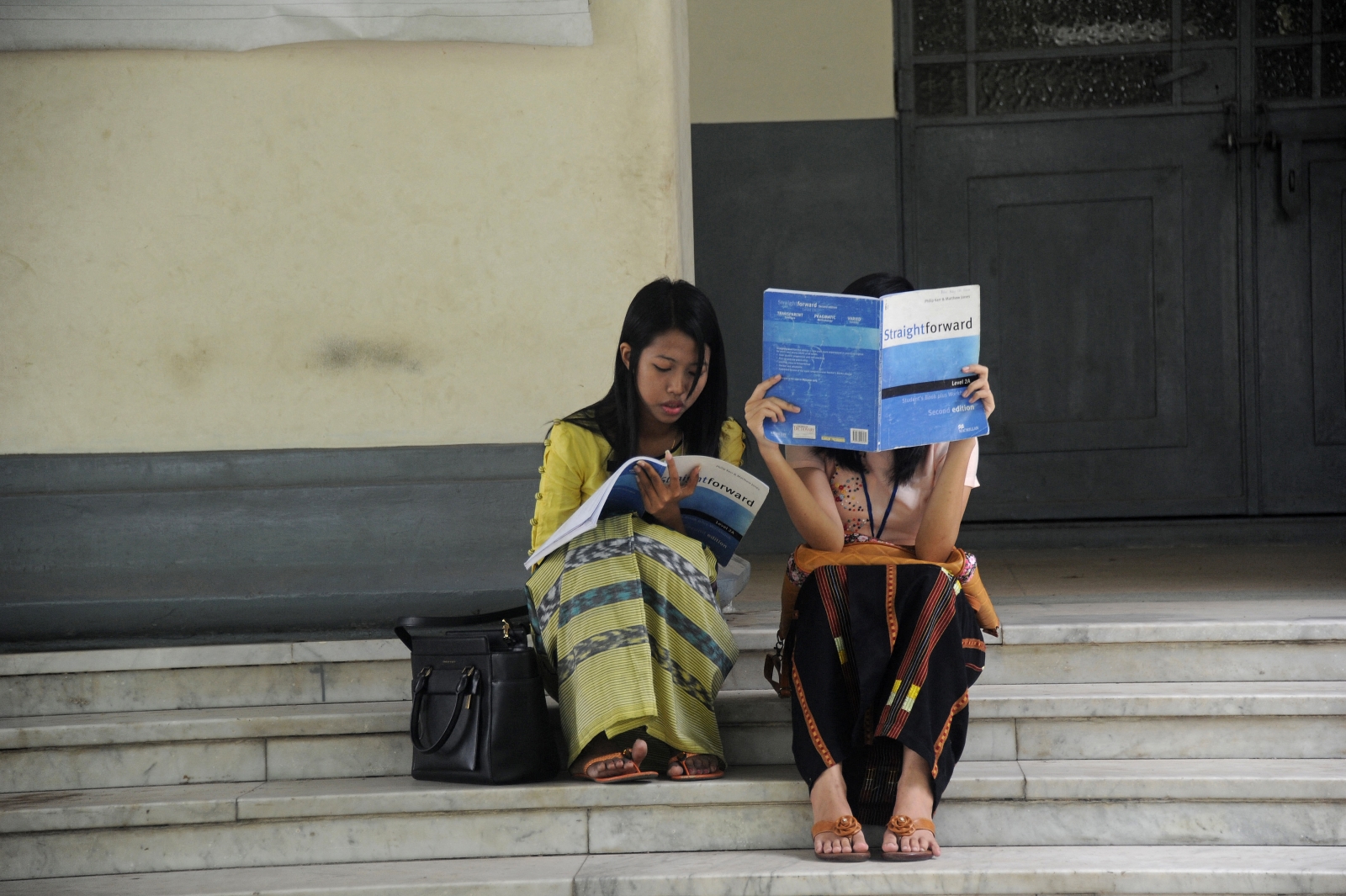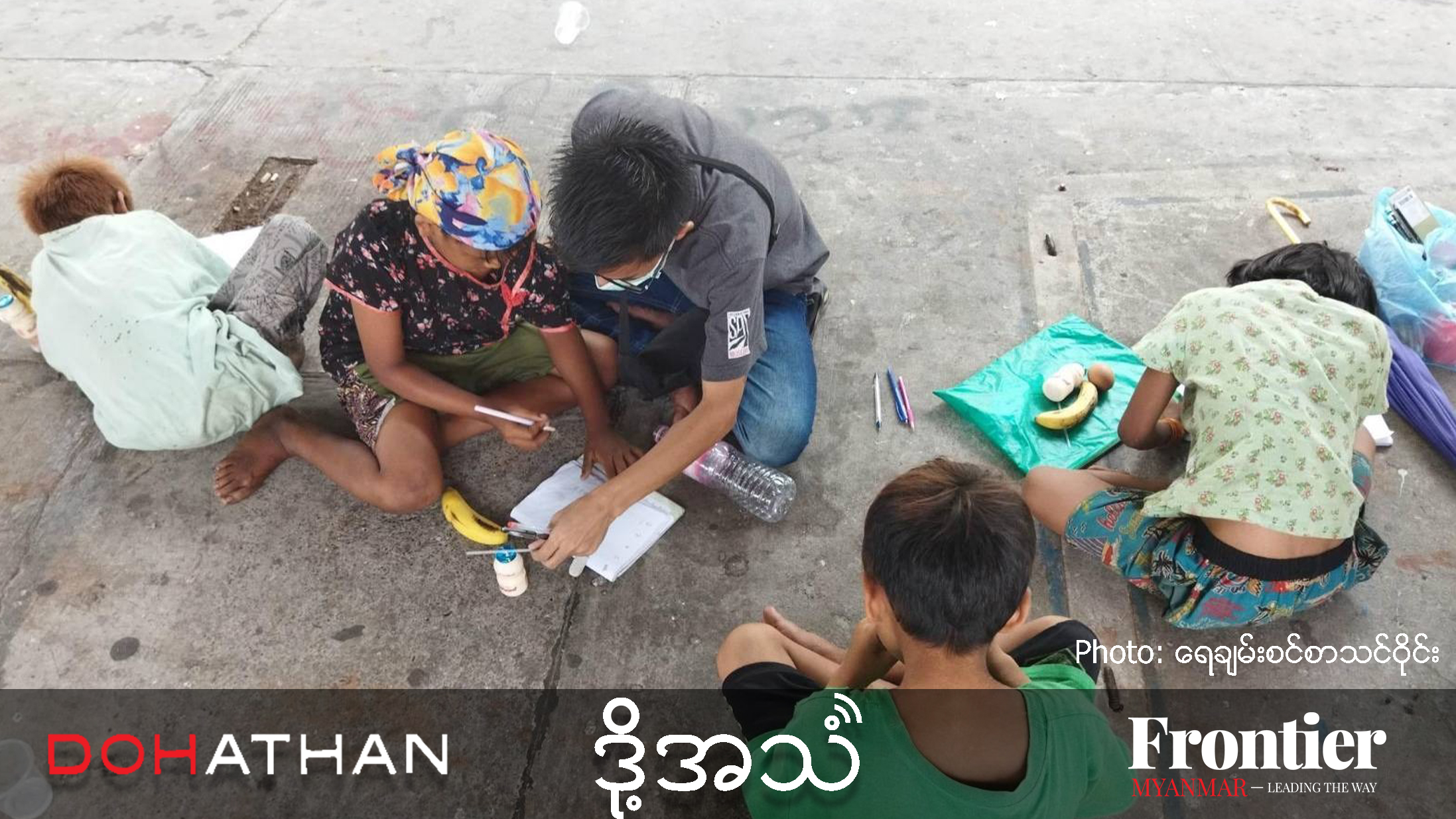Reforms to the education system are required for Myanmar poultry farmers to improve their profits and to bring down the cost of food for consumers.
By DUMRONG LEENANURUKSA & GRAHAM McDOWELL | FRONTIER
STATE MEDIA recently reported that the Yangon Region government had cancelled a plan to allow the import of frozen chicken meat from abroad. Several months ago, Yangon Region Chief Minister U Phyo Min Thein had proposed allowing imports in an effort to bring down the market price of chicken and make it more affordable.
The topic provoked vigorous debate within the sector, including at a Myanmar Livestock Federation meeting held on August 25. The federation was asked to provide its input on the imports. Eventually, objections from breeders, who argued that it would drive them out of business, won the day.
At the root of this issue is the low efficiency of chicken production in Myanmar, which has meant that the industry is unable to meet domestic demand. You might not think this has a lot to do with education, but it does.
The inefficiency is in large part a consequence of the failure to reform the higher education system. This has led to a lack of skilled workers to meet the needs of the animal production industries.
Support more independent journalism like this. Sign up to be a Frontier member.
Look closely at the poultry and other livestock production systems in Western countries, as well as neighbouring Thailand, from where much of the imported poultry meat is being sourced. Production efficiency has been increased through the use of semi-intensive or intensive production systems. These can only be introduced if you have the required technical expertise, which is best obtained by training local professionals.
But the higher education system in Myanmar, as it relates to agriculture and associated industries, is comprised of universities that educate professionals serving a single profession.
That means the University of Veterinary Sciences (UVS) provides education for veterinarians, the Yezin Agricultural University (YAU) provides education for plant production specialists and the University of Forestry, Yezin (UFY) provides education for foresters. Each of these universities is controlled by the ministry that oversees the particular profession.
Even though they are adjacent to each other at Yezin, the universities operate as totally independent entities. There are no graduates with a crosscutting education of the kind needed to raise animal production standards.
The new National League for Democracy government has merged the ministries responsible for the oversight of UVS and YAU, but there has not been any real change in the education of specialists who will serve the agricultural and related industries, and in particular the animal production sector. Thus UVS continues to educate veterinarians and YAU continues to educate plant production specialists.
We have previously proposed the merger of the three universities at Yezin into a comprehensive university.
A Bachelor of Animal Production Science taught by specialist staff from the relevant departments would produce well-rounded professionals who will be in a position to improve the animal production industries, including the poultry sector. Such a reform would better serve Myanmar than the recent decision to introduce a degree in animal science at UVS.
To achieve such a merger, the government must target the unification of the higher education system for Myanmar as one of its top priorities. The creation of a Ministry of Education, or Ministry of Higher Education, responsible for the oversight of the formation of comprehensive universities should be a first step.
A comprehensive university would be more efficient than the current single-discipline universities at Yezin. Students would benefit from the opportunity to study a range of disciplines, as they would be better placed to respond to the complex situations they will face in their professional careers.
In the case of animal production, graduates with a balanced education will be better able to support the changes needed to raise productivity. For consumers, that should mean a more affordable supply of products including chicken meat.







